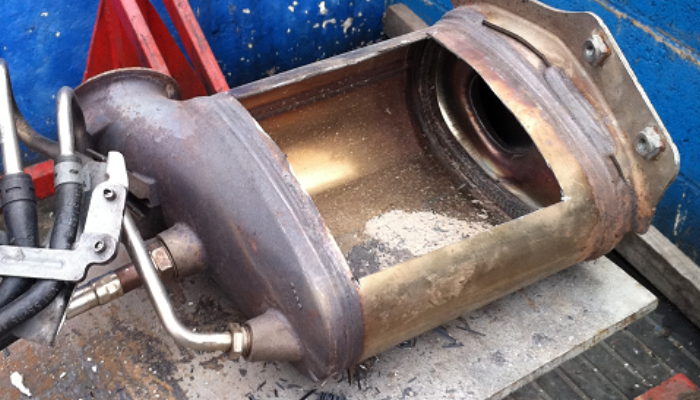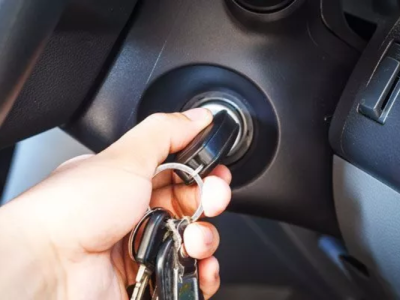It can be a scary experience if you find yourself in a situation where you have been caught with a DPF Delete on your vehicle. It is important to understand what a DPF Delete is and how it could potentially affect you if you are caught with one.
What is a Diesel Particulate Filter?
A Diesel Particulate Filter (DPF) is a device installed in the exhaust of diesel engines to trap and reduce soot emissions. It does this by trapping the microscopic particles of soot in a ceramic filter and then burning them off with a chemical reaction.
This helps to reduce the amount of pollutants emitted into the atmosphere. It’s important to note that a DPF Delete involves the removal of this filter, allowing the engine to emit higher levels of pollutants into the air. This practice is illegal in many countries and can lead to hefty fines or other penalties if caught.
Causes of DPF Deletion
The causes of DPF deletion are mainly due to the fact that diesel particulate filters (DPF) are designed to trap and store the soot particles that are created during the combustion process. As such, DPF delete mods are often employed by those looking to reduce the amount of soot that is entering the exhaust system, resulting in improved engine performance and fuel economy.
However, such modifications can lead to significant penalties if the vehicle is caught with the DPF delete installed. This is due to the fact that DPF deletes can cause increased emissions, which is often seen as a violation of emission regulations.
Furthermore, it can also lead to engine damage if the DPF is not correctly removed, as an incorrect removal can lead to the build-up of soot within the engine, which can ultimately lead to engine failure. Consequently, it is important that any DPF delete mods are performed correctly and legally, ensuring that any potential penalties are avoided.
Benefits of DPF Deletion
DPF Deletion is a great way to improve the performance of your vehicle. The Diesel Particulate Filter (DPF) is designed to trap and reduce diesel emissions, but over time it can become clogged with soot and other particles which can reduce the performance of your vehicle.
By deleting the DPF, you can improve the performance of your vehicle, as well as reduce the amount of time spent on maintenance. Not only does DPF Deletion improve the performance of your vehicle, but it also reduces the amount of fuel used.
This helps to save you money on fuel costs, making DPF Deletion a cost-effective solution for improving your vehicle’s performance. Additionally, DPF Deletion can improve the engine’s power output, as well as reduce engine noise. It can also reduce the amount of time spent on maintenance, as the filter is no longer required. Finally, DPF Deletion can reduce the amount of pollution emitted by your vehicle, helping to reduce your carbon footprint.
All in all, DPF Deletion is a great way to improve the performance of your vehicle and save money on fuel costs.
Potential Risks of DPF Deletion
The potential risks of DPF (diesel particulate filter) deletion are numerous. While it may seem like an attractive option for some, it can have serious consequences depending on the jurisdiction in which it is performed. In most cases, DPF deletes are illegal due to their effect on emissions.
Not only can they result in costly fines, but they can also void vehicle warranties and have other negative impacts on the environment. Furthermore, DPF deletes can cause engine damage due to the buildup of soot particles. This can lead to costly repairs or even the replacement of the entire engine.
It is also important to note that DPF deletes are often accompanied by other modifications such as EGR deletes, which can further increase the risk of engine damage. Therefore, all potential risks should be carefully weighed before considering a DPF deletion.
Legal Implications of DPF Deletion
DPF deletion is a process that involves removing the diesel particulate filter (DPF) from the exhaust system of a diesel vehicle. This process can have legal implications, and drivers who have their DPF deleted may be at risk of violating laws and regulations.
The DPF is designed to reduce the amount of harmful emissions released into the atmosphere, and when it is removed, the vehicle is no longer in compliance with emissions standards.
Many states have adopted laws that prohibit tampering with emissions control equipment, including the DPF, and those who are caught with a DPF deletion could face fines and other penalties.
Additionally, drivers who have had a DPF delete may be viewed as responsible for any environmental damage that has been caused by the removal of the filter, and may be subject to legal action in this case as well.
Alternatives to DPF Deletion
DPF (Diesel Particulate Filter) Deletion is a popular service that many diesel vehicle owners opt for. While it might seem like a convenient solution to the problems caused by clogged particulate filters, it is actually illegal and carries serious consequences. Fortunately, there are some alternatives to DPF Deletion that have proven to be just as effective without breaking the law.
One of the most popular alternatives is to have the DPF filter professionally cleaned. This is a much more affordable option as it doesn’t involve any modifications to the vehicle’s hardware. Professional cleaning services can be expensive, but they are much cheaper than a DPF Delete. Additionally, they can usually improve your fuel economy and reduce emissions.
Another option is to install a DPF bypass pipe. This is essentially a pipe that bypasses the DPF filter, allowing the exhaust to flow freely. While it is an effective solution, it is also illegal and can result in hefty fines. Therefore, it should only be considered if you are willing to accept the risks.
Finally, you can also install a DPF delete kit. This kit will replace the DPF filter with a straight pipe, allowing exhaust gases to flow freely. However, this is also illegal and can have serious consequences. It’s important to remember that a DPF Delete kit will void your vehicle’s warranty and can cause serious damage to your engine.
Conclusion
A DPF delete is not for everyone. It is often illegal and can cause long-term damage to the engine and fuel system. It takes a knowledgeable and experienced automotive technician to understand the complexities of a DPF delete and to ensure that it is properly installed.
Although the DPF delete can offer improved performance, it is important to weigh the pros and cons of any modification before making an investment. If installed correctly, a DPF delete can offer enhanced performance and fuel economy, but it is also important to remember that it is illegal in many states and could lead to costly fines or even jail time if caught.















Comments